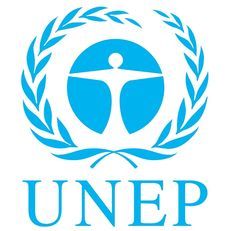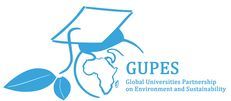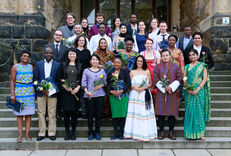Being still within the UN-decade of biodiversity and still being far from reaching the goals in biodiversity conservation at the same time, the consequences of degrading ecosystems are contemporary challenges for ecology, economy and society. Biodiversity comprises more than species and genes and society is in urgent need to manage the interrelations of the human-biosphere interface.
In September 2015 the 65th UNEP/UNESCO/BMUB International Short Course on “Ecosystem Management – Biodiversity and Restoration Ecology” was conducted at the Centre for International Postgraduate Studies of Environmental Management (CIPSEM), which is part of the Faculty for Environmental Sciences at Dresden University of Technology, Germany.
The management of biodiversity and ecological restoration nowadays is part of the agenda in many institutions including state, federal, and local governments, non-profit environmental protection and advocacy organizations, as well as private consulting firms; particularly those dealing with environmental impact analysis, environmental restoration and remediation projects. Therefore overarching concepts of biodiversity as such, of restoration approaches, of putting a value on ecosystem services and many other aspects were in the focus of this course. It has benefitted greatly from the experience and kind sharing of this diverse group of highly motivated 21 participants from 20 countries.
In their wonderful short speeches on behalf of the group, Ms Yetunda McLean from Jamaica and Mr Mindaye Teshome Legese from Ethiopia have highlighted some of the characteristics which everybody contributed to help this group to grow and explore together. This gives good reason for hope, because there are a lot of issues to tackle. On September 25 2015, the very same day of the conclusion of the course, the world leaders came together in New York to make sustainable development with its many interlinked aspects a top priority for all countries. The 17 Sustainable Development Goals are designed as one indivisible package. The fact that two of the 17 targets address terrestrial and marine biodiversity directly which highlights the importance of this topic to:
- Protect, restore and promote sustainable use of terrestrial ecosystems, sustainably manage forests, combat desertification, and halt and reverse land degradation and halt biodiversity loss (Goal Nr. 15)
- Conserve and sustainably use the oceans, seas and marine resources for sustainable development (Goal Nr. 14).
Let’s take our governments by their words. And also let’s assume the responsibility we all have for how these circumstances develop, and let’s celebrate the small victories along the way.
For more information visit www.tu-dresden.de/cipsem








 Except where otherwise stated, content on this site is
licensed under a Creative Commons Attribution 3.0 License.
Except where otherwise stated, content on this site is
licensed under a Creative Commons Attribution 3.0 License.
